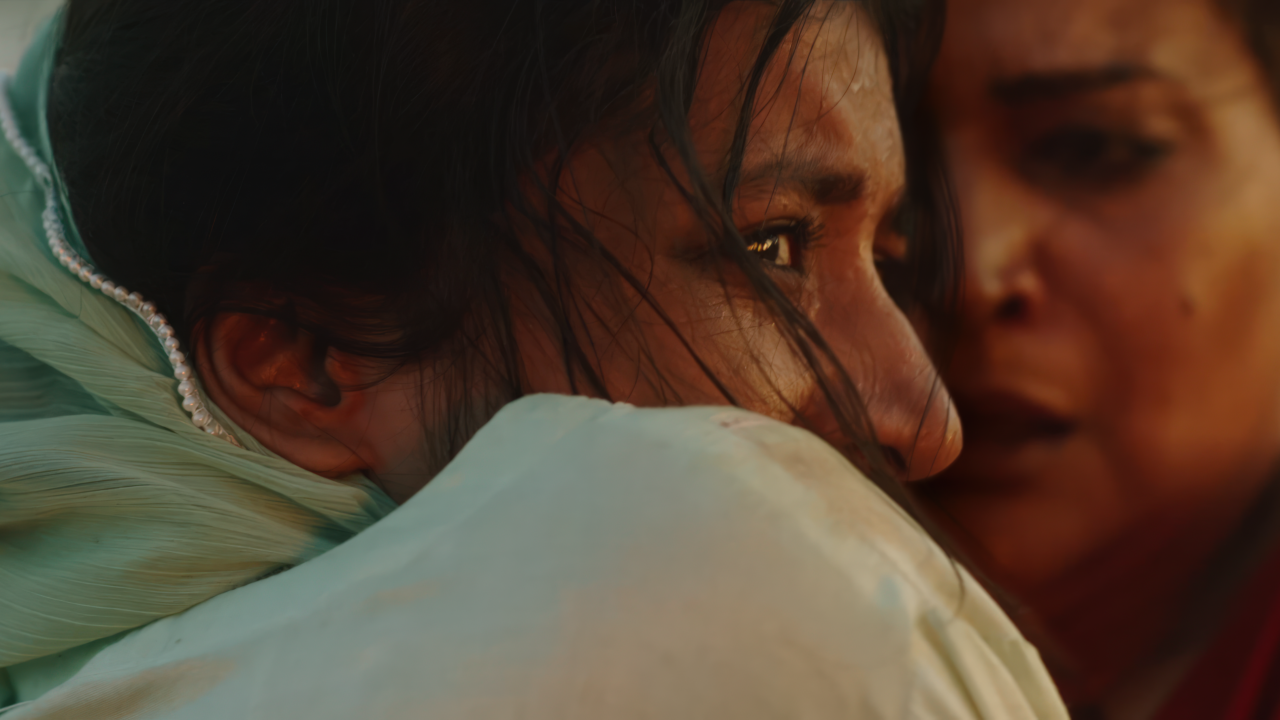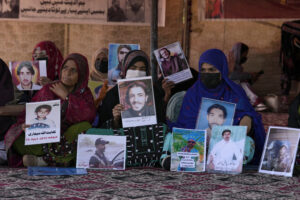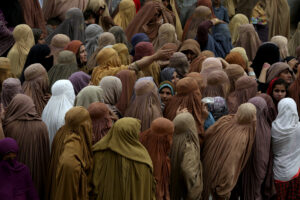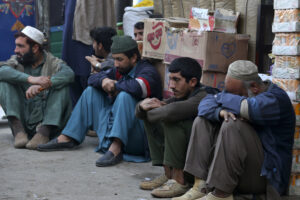The Ghouls of Karachi
Pakistan's Oscar entry “In Flames” is a subversive horror movie about the specter of sexual violence. Image courtesy of Game Theory Films
Image courtesy of Game Theory Films
Zarrar Kahn’s “In Flames” is a ghost story where the specters are social constraints that follow its characters around the megacity of Karachi, a sprawling metropolis made to feel oppressive and haunting through cinematic sleight of hand. The film’s meticulous sound design transforms every echo — the calls of common birds, security guards rapping their batons on metal gates — into a screeching, clanging soundtrack that sets the viewer’s teeth on edge. For young med student Mariam (Ramesha Nawal), who is dealing with the death of her father and a blossoming romance gone awry, daily life is a waking nightmare of Pakistan’s suffocating patriarchal expectations, retroactively justified through Islamic law.
Kahn’s feature debut premiered at the Cannes Film Festival last year and was chosen as Pakistan’s entry for the Academy Awards, making it only the 12th time the country has sent a film to the Oscars. Though it’s never secured a nomination, it continues a recent trend of daring choices by the Pakistani Academy Selection Committee, following unconventional works that defy conservative clerical norms, like the masculinity inquiry “Zindagi Tamasha” (“Circus of Life”) and the transgender romance “Joyland.””
“In Flames” continues this tradition. It is a tale of resilience in the face of personal trauma and institutional misogyny, in which sexual violence is tacitly permitted and sets the stage for disorienting social horror. At every turn, the sweet, soft-spoken Mariam must remain on guard. This could mean second-guessing the motives of her paternal uncle Nasir (Adnan Shah Tipu) when he offers to help her mother Fariha (Bakhtawar Mazhar) with inheritance paperwork, or simply maintaining a hyper-awareness of her surroundings. When men are eager to show Miriam kindness, Kahn’s camera lingers on her uncertainty, imbuing nearly all her interactions with elements of doubt, as if to ask: What do they really want?
Horror rarely thrives in the daylight, but Kahn effectively applies an X-ray filter to familiar comforts to conjure creeping, subversive horror from the daily dangers that exist for Pakistani women in even the most unassuming situations.
When Mariam makes what appears to be a genuine connection — with fellow student Asad (Omar Javaid) — a road accident tears them apart and unmoors her sense of being. She also receives a head injury, allowing Kahn to judiciously force the audience to question Mariam’s perspective and assisting the film’s gradual slide towards paranoia as she begins seeing and hearing ghostly figures. Cinematic tricks like flickering lights and mysterious figures in shadow, the kind usually applied to haunted houses in the dark, unfold around her in daylight along with disembodied male voices addressing her from somewhere off-screen. “Mariam,” they whisper harshly, as though her very existence was defined by the specter of gendered violence.
Meanwhile, Kahn’s subversive depiction of Mariam’s mother — a deft mix of comedy and heartfelt drama — proves as compelling as the movie’s horror elements. Though born in Karachi, Kahn has spent much of his life in Ontario, and is part of a generation of South Asian filmmakers whose stories tend to center the tensions between children and parents. For better or worse, Khan and his cohort often resort to caricatured depictions of older and more conservative generations, as in “The Big Sick,” “Ms. Marvel,” “Blinded by the Light,” “The Queen of My Dreams,” “A Nice Indian Boy.” The list goes on.
“In Flames” begins with a similar “parents just don’t understand” approach. Fariha constantly admonishes Mariam for minor perceived slights; Mariam hides her new beau from her mother’s overbearing watch. However, in time Kahn begins to unearth complex layers to Fariha, those involving her seeming conservatism and betraying apparent naïveté. The life she has lived — or rather, has been forced to live, in the shadows of men — has shaped her in ways that make protecting herself, and her daughter, her utmost priority, even if it makes her seem needlessly punitive.
Despite its jagged contours, “In Flames” features fleeting moments of comfort, especially during Mariam and Asad’s giddy courtship. But these are inevitably interrupted by harsh realities, such as the moral police entering the frame and forcing them to sit at a distance from one another. Spaces that initially seem warm and welcoming quickly become uncomfortably hot.
Horror rarely thrives in the daylight, but Kahn effectively applies an X-ray filter to familiar comforts to conjure creeping, subversive horror from the daily dangers that exist for Pakistani women in even the most unassuming situations. “In Flames” is as exciting in its technical proficiency as it is unsettling in its visceral impact — an ingenious use of the horror genre to unearth the vicious subtext of a patriarchal society.
Your support matters…Independent journalism is under threat and overshadowed by heavily funded mainstream media.
You can help level the playing field. Become a member.
Your tax-deductible contribution keeps us digging beneath the headlines to give you thought-provoking, investigative reporting and analysis that unearths what's really happening- without compromise.
Give today to support our courageous, independent journalists.






You need to be a supporter to comment.
There are currently no responses to this article.
Be the first to respond.